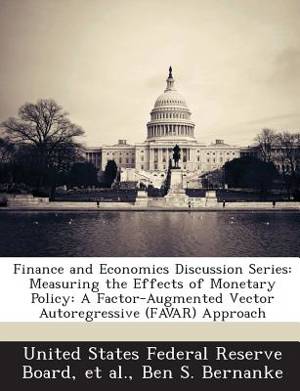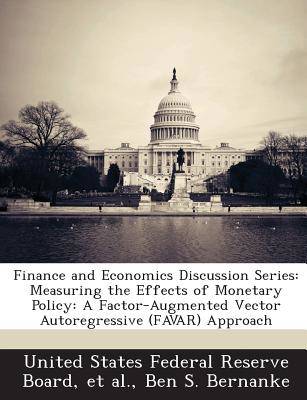
- Afhalen na 1 uur in een winkel met voorraad
- Gratis thuislevering in België vanaf € 30
- Ruim aanbod met 7 miljoen producten
- Afhalen na 1 uur in een winkel met voorraad
- Gratis thuislevering in België vanaf € 30
- Ruim aanbod met 7 miljoen producten
Zoeken
Finance and Economics Discussion Series
Measuring the Effects of Monetary Policy: A Factor-Augmented Vector Autoregressive (Favar) Approach
Ben S Bernanke
Paperback | Engels
€ 23,45
+ 46 punten
Omschrijving
Structural vector autoregressions (VARs) are widely used to trace out the effect of monetary policy innovations on the economy. However, the sparse information sets typically used in these empirical models lead to at least two potential problems with the results. First, to the extent that central banks and the private sector have information not reflected in the VAR, the measurement of policy innovations is likely to be contaminated. A second problem is that impulse responses can be observed only for the included variables, which generally constitute only a small subset of the variables that the researcher and policymaker care about. In this paper we investigate one potential solution to this limited information problem, which combines the standard structural VAR analysis with recent developments in factor analysis for large data sets. We find that the information that our factor-augmented VAR (FAVAR) methodology exploits is indeed important to properly identify the monetary transmission mechanism. Overall, our results provide a comprehensive and coherent picture of the effect of monetary policy on the economy.
Specificaties
Betrokkenen
- Auteur(s):
- Uitgeverij:
Inhoud
- Aantal bladzijden:
- 52
- Taal:
- Engels
Eigenschappen
- Productcode (EAN):
- 9781288713431
- Verschijningsdatum:
- 6/02/2013
- Uitvoering:
- Paperback
- Formaat:
- Trade paperback (VS)
- Afmetingen:
- 189 mm x 246 mm
- Gewicht:
- 108 g

Alleen bij Standaard Boekhandel
+ 46 punten op je klantenkaart van Standaard Boekhandel
Beoordelingen
We publiceren alleen reviews die voldoen aan de voorwaarden voor reviews. Bekijk onze voorwaarden voor reviews.








